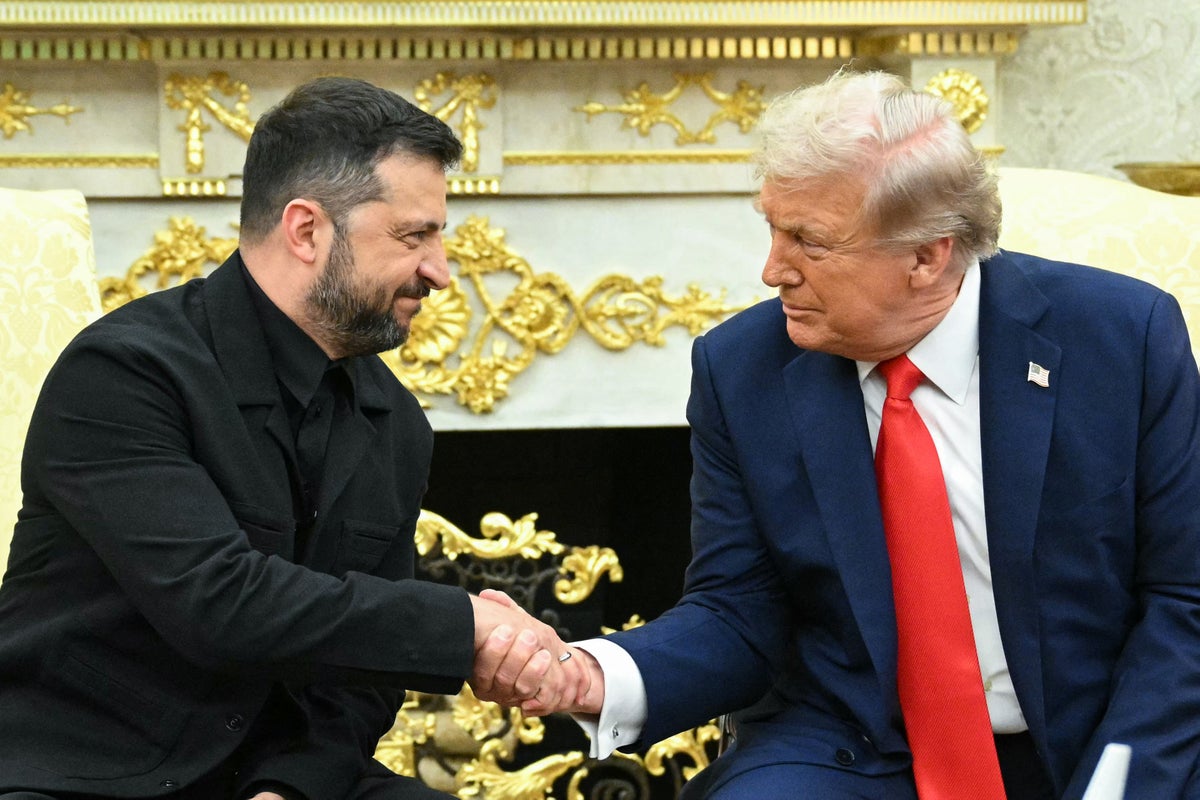World leaders gathered in Washington on Monday for a summit billed as a potential turning point in efforts to end the most significant ground war in Europe since the Second World War.
In the Oval Office, Donald Trump hosted Ukraine’s Volodymyr Zelensky and senior European figures to thrash out what security guarantees for Ukraine might look like if a peace deal with Russia can be reached.
The meeting was described as “historic” by Sir Keir Starmer, who has emerged as one of the driving forces behind Europe’s response.
But even as the talks took place, Moscow dismissed the plans as dangerous and warned against any Western military presence in Ukraine.
United States security guarantees
Trump has made clear that the United States will not commit troops on the ground in Ukraine.
But the prospect of an arrangement that borrows some of the deterrent effect of Nato’s Article 5 has been discussed, a move revealed by the alliance’s secretary general Mark Rutte.
He told Fox News: “What we are discussing here is not Nato membership, what we are discussing here is Article 5 type of security guarantees for Ukraine and what exactly they will entail will now be more specifically discussed.”
Ukraine also wants to buy $90 billion (£67bn) worth of US weapons and says they could form part of the security guarantee.
Beyond that, however, Trump has been vague about how much the US would contribute.
Speaking in the Oval Office on Monday, Trump underlined that European nations would be expected to carry most of the burden.
“When it comes to security, there’s going to be a lot of help,” he said, sitting next to Zelensky. “They are a first line of defence because they’re there. But we’ll help them out.”
British guarantees and the coalition of the willing
The United Kingdom has taken a leading role in shaping European proposals. Prime Minister Keir Starmer has spearheaded the creation of a “coalition of the willing”, a group of allies prepared to go further than financial and weapons support.
Under this plan, international “reassurance” forces could be deployed in Ukraine after a ceasefire or peace deal, helping to deter renewed Russian attacks and to provide reassurance that Kyiv is not left to stand alone.
The plan was discussed in a virtual meeting on Tuesday attended by more than 30 international leaders.
The virtual meeting, co-chaired by Sir Keir, also discussed possible further sanctions on Russia to pile pressure on Vladimir Putin to end the war.
European leaders see security guarantees as essential to any peace deal, but they also stress that Ukraine must be directly involved in shaping the terms.
The European Union’s existing training mission for Ukrainian troops will also continue, ensuring that Kyiv can sustain and modernise its armed forces in the years ahead.
Russia’s response
Moscow has dismissed Western plans for security guarantees. The Russian foreign ministry yesterday reiterated its opposition to the deployment of Nato or Nato-affiliated troops in Ukraine, warning that such a move would be seen as a direct threat to Russia’s security.

